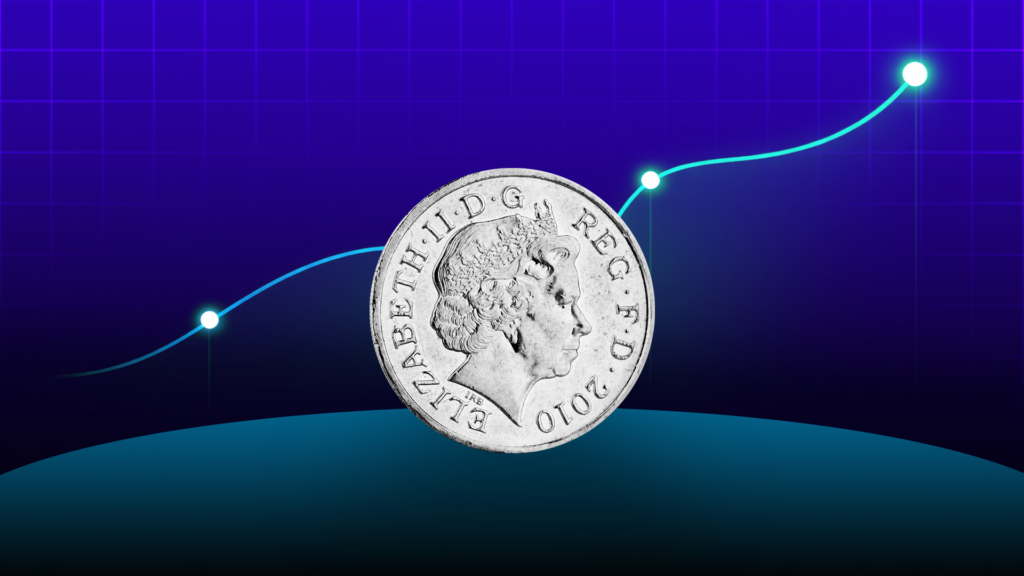If they made a list of the top buzzwords of 2021, cryptocurrency would certainly find itself very high on the list. The only thing that has spread faster in the last few years is a certain virus.
Cryptocurrencies have crept into conversations about finances whether the conversation is happening on Reddit, at a coffee shop, or in a board meeting. Those who have invested in it and made a quick fortune use words like blockchain, mining, Bitcoin, satoshis, etc. and those who haven’t are left intimidated and on the verge of FOMO.
This does not mean you should get swayed by the hollering of crypto-warriors on the Internet. Experts will ask you not to do anything with your money that you don’t understand. But any investor worth their salt knows that building a diverse portfolio is about being open-minded and, therefore, about getting exposed to newer investment avenues that help you grow your net worth.
So the million-dollar (crypto?) question is, what really is cryptocurrency? Should you be investing in it? What does it do that existing currencies cannot do? How big is the risk factor? Here’s a lowdown on the crypto-universe that will open you up to this exciting investment asset.
What is cryptocurrency?
A cryptocurrency is a digital currency that can be used for payments and online transactions. You exchange your rupees to buy cryptocurrency of a certain kind. After you purchase it, you can use it to pay for goods and services, you can use it to transfer money anywhere in the world or you can treat it as your investment and make it a store of value (think gold).
So, why is it called cryptocurrency? The word comes from cryptography which means the art of writing or solving codes. Each “coin” of cryptocurrency is a unique piece of code. And cryptocurrencies can’t be copied, which makes them easy to track and identify as they’re traded.
How does cryptocurrency work?
Cryptocurrencies are exchanged between individuals or entities on the Internet without an intermediary, like a bank or a government. They are operated using a technology called blockchain. Blockchain is nothing but a decentralised network of computers that manages and records transactions. What sets this technology apart is its security as it is extremely difficult to penetrate or tamper with. This guarantees that no one – not even your bank or your government – has control over your stack of cryptocurrency.
Where is cryptocurrency stored?
If you’ve been given the impression that you need to be tech-savvy to be able to manage your cryptocurrencies, then you’ve been given the right impression. Your cryptocurrency is stored in a digital wallet, which is basically an app, or through an exchange where you purchase your coins. Your wallet assigns you a private key – a unique code that is used to digitally validate your purchases. Essentially, it’s proof that the transaction was legit.
What are the types of cryptocurrency?
Bitcoin is the front runner that everyone talks about. First proposed in 2009 in a paper published by an unknown person going by the name Satoshi Nakamoto (no one knows who he is), it is now the most valued cryptocurrency. The anonymity of the origins of Bitcoin is what gives it an air of mystery that attracts everyone but also compels them to think twice before getting into it.
Having said that, it is not the only kind of cryptocurrency out there. There’s Ethereum, Cardano, Polkadot, Dogecoin, among an extensive list of 10,000 other weirdly-named coins. Every cryptocurrency is unique in terms of its technology, its utility, and its potential to become a store of value for an investor.
How is cryptocurrency different from real world currency
Before you line up your rupees to exchange them for Bitcoin, you need to understand what it adds to your investment portfolio and what distinguishes it from your FDs, your SIPs and your gold bars.
Any form of money has two key objectives: to function as a medium of exchange and to become a store of value. Basically, you need to be able to transact in it and you need to be able to save it. Both real world money a.k.a. fiat money and cryptocurrency meet those requirements but take vastly different routes to get there.
Cryptocurrencies are only available in digital form as they are created by computers and operated as long lines of code. Fiat money on the other hand can exist both digitally and physically.
A key difference between fiat money and cryptocurrency is its supply. The supply of fiat money is unlimited which means central banks can produce as much fiat money as they need. This directly impacts the value of your money. The more there is of something, the less valuable it is. Conversely, some cryptocurrencies are limited when it comes to supply, which means there is a predefined amount of coins that will ever be in circulation. For example, there will only ever be 21 million Bitcoin coins.
Here’s a quick grade sheet for you to understand the key differences between the bills in your wallet, the stack of Bitcoin coins you hold and the gold in your locker, based on certain characteristics that you can attribute to any form of money.
| Cryptocurrency | Physical Fiat | Digital Fiat | Gold | |
| Durability | A+ | C | A+ | A+ |
| Portability | A+ | B | A+ | D |
| Scarcity | A+ | F | F | B |
| Divisibility | A+ | F | A+ | A |
| Verifiability | A+ | B | A+ | B |
| Dispute Resolution | D | C | A+ | C |
| Ease of Use | D | A+ | A+ | B |
Should I invest in cryptocurrency?
Cryptocurrency is not always a stable asset from an investment point of view. For example, it is not a good idea to invest in it to cover your emergency expenses. But you can consider it for longer investment horizons that allow you to bump up your risk appetite.
A prudent way to go about it is to invest in cryptocurrencies only after all your critical bases are covered. Which is to say, if you already have an emergency fund to pay for three to six months of expenses AND you have distributed a decent portion of your income over well-performing equity-linked and debt instruments, then you can consider investing a small portion of your money in cryptocurrencies.
Investing in some cryptocurrencies can help diversify your portfolio particularly since cryptocurrencies such as Bitcoin have historically held their own in comparison with stock markets and other assets. So from the point of view of retaining the value of your money and beating inflation, it can be worth investing in cryptocurrencies.
Take note, however, that cryptocurrency is currently an unregulated asset in India. While the cryptocurrency bill has been in the pipeline for a few years, there isn’t enough clarity as to the investment provisions and tax ramifications for this form of investment. It would be wise to wait for the bill to be passed before you consider investing in the crypto market.
The bottom line
The journey towards financial security requires patience. Presently, cryptocurrency has too many unknowns associated with it. Can Bitcoin be adopted at a broader level where you might be able to transact using it in the future? Maybe. But as things stand today, we don’t know.
Nevertheless, building wealth also requires you to keep an open mind. This should motivate you to learn more about cryptocurrency and get exposure to it. If you have built a responsible investment portfolio and have evaluated your risk appetite properly, then investing in cryptocurrencies is certainly an option you can consider.























